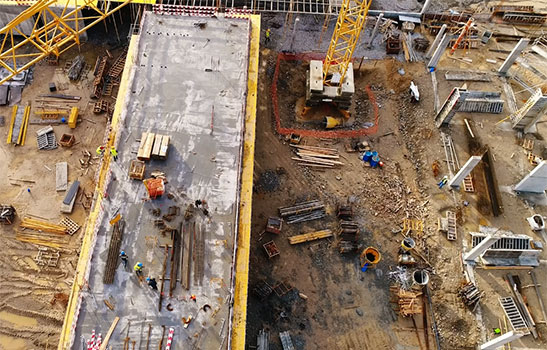IBAC has released a research report on the corruption risks that impact major Victorian infrastructure projects during procurement and construction.
In Victoria, major infrastructure projects make up a growing sector that receives billions of tax-payer dollars each year.
It is also a sector where the impacts of corruption are higher due to the size, complexity, and the amount of money involved.
IBAC's research focused on projects overseen by the Major Transport Infrastructure Authority.
These projects are being undertaken through the Victorian Government's multi-billion-dollar Big Build initiative.
Importantly, the report provides strategies on how organisations can detect and reduce the risk of corruption occurring.
IBAC's research found that the key corruption risks impacting major transport infrastructure projects during procurement and construction are fraud, collusion, and bribery during procurement, collusion and bribery by contractors and subcontractors, contractor and subcontractor fraud such as false invoicing and false claims, and favouritism and fraudulent recruitment practices, including payroll fraud.
Significantly, our research also identified key corruption drivers in the sector. These are complex systems, processes and operating environments, high-level political, performance and economic pressures to deliver, and conflicts of interest resulting from a small number of major contractors and a shortage of technical experts.
The Victorian community expects major infrastructure projects to have a high standard of integrity and to ensure that public funds are managed appropriately, and that the risks of corruption are minimised.
Here are a few prevention tips for people responsible for major infrastructure projects to consider:
- Corruption prevention starts with strong integrity frameworks and corruption controls. Ensure you have centralised and coordinated risk assessment, detection and prevention measures, and data collection and analysis between projects.
- Share information between integrity officers and those responsible for leadership and governance to strengthen integrity frameworks and corruption controls.
- Consider using contract management frameworks - such as alliance contracting - to increase transparency.
- Develop and uphold a culture of integrity and awareness of the public sector standards among construction suppliers and across projects.
- Mandate minimum contracting clauses that protect the public sector from corrupt practices, and that drive and support ethical practices.
IBAC will continue to work with organisations across the public sector to raise awareness of the risks highlighted in this report.
I encourage anyone involved in delivering high value, high risk projects to visit our website and to read our research report in full.


